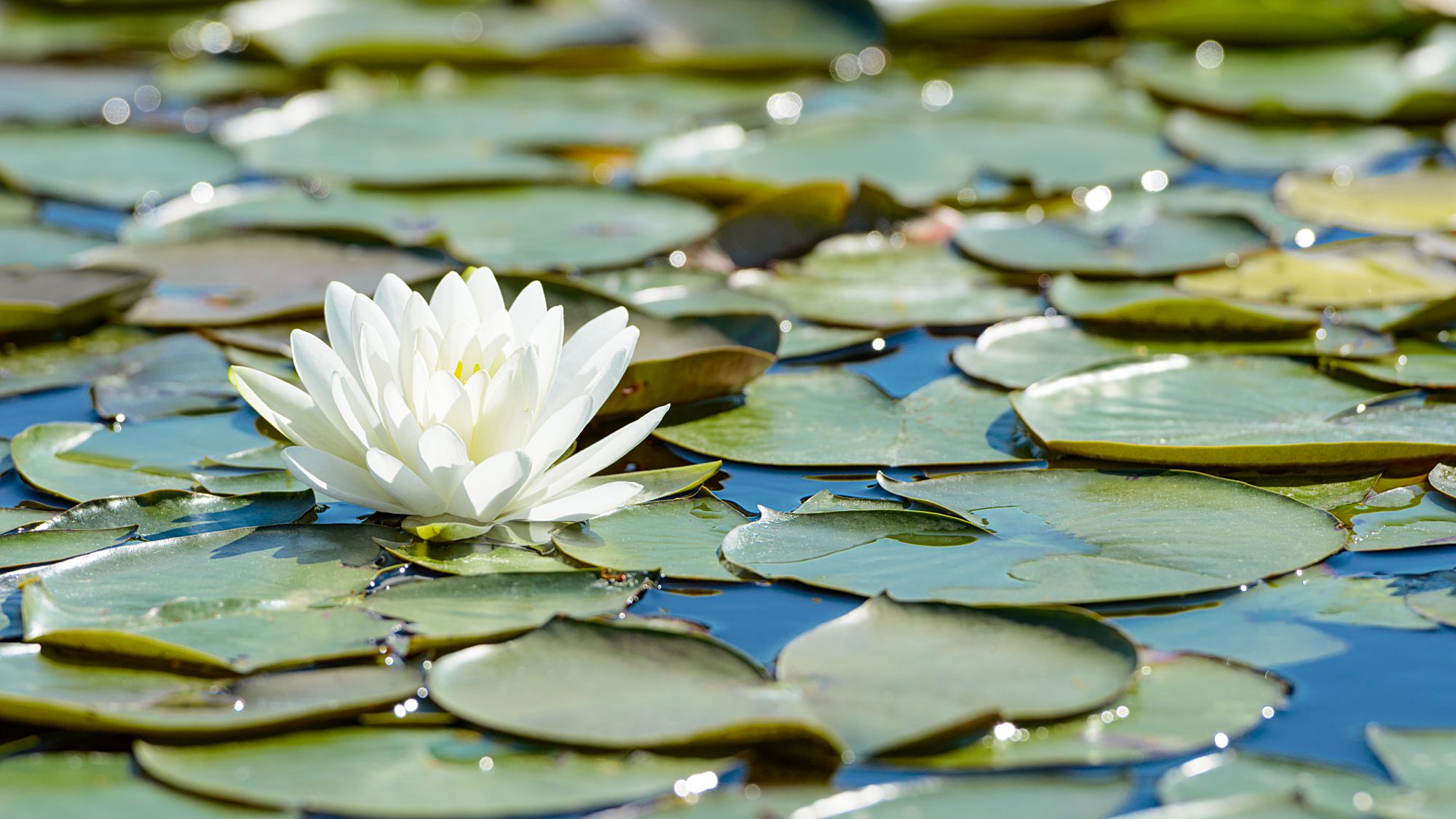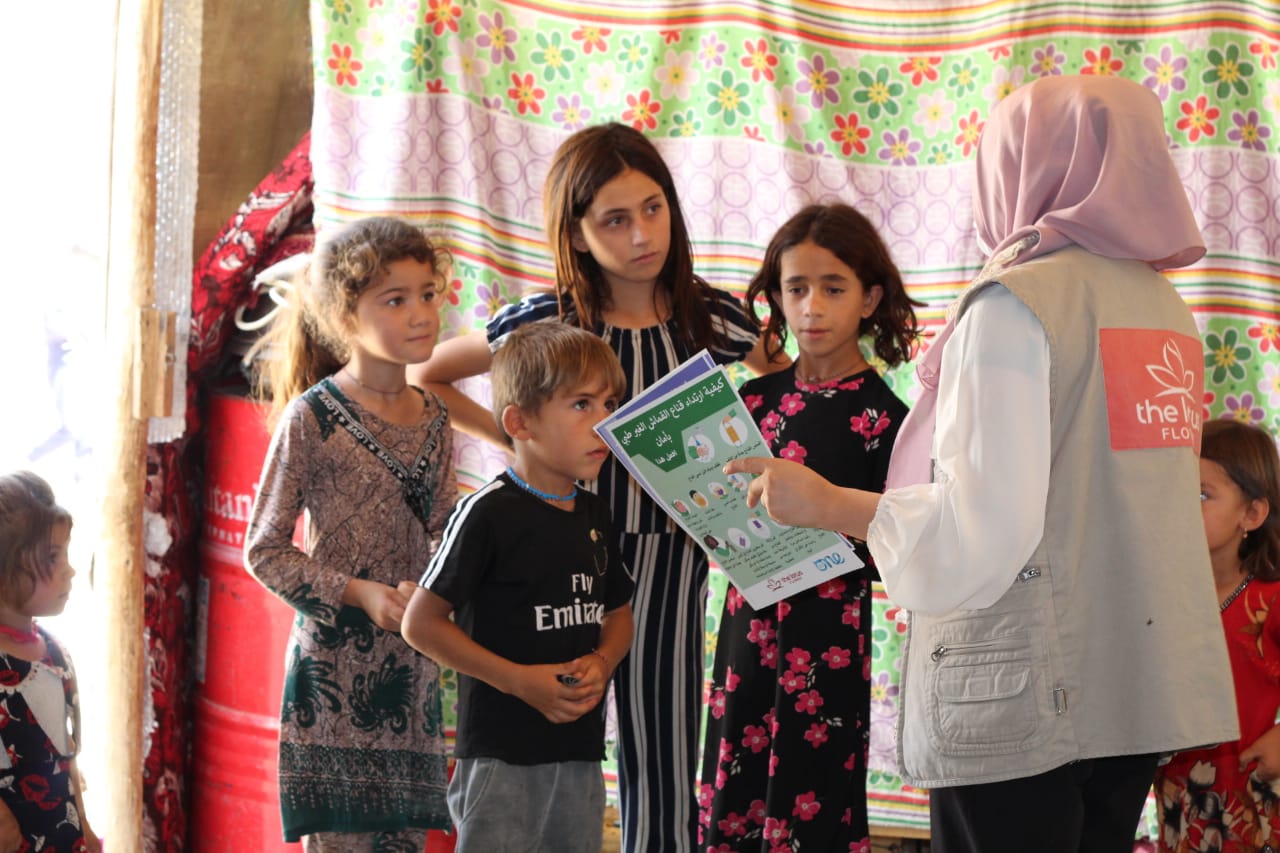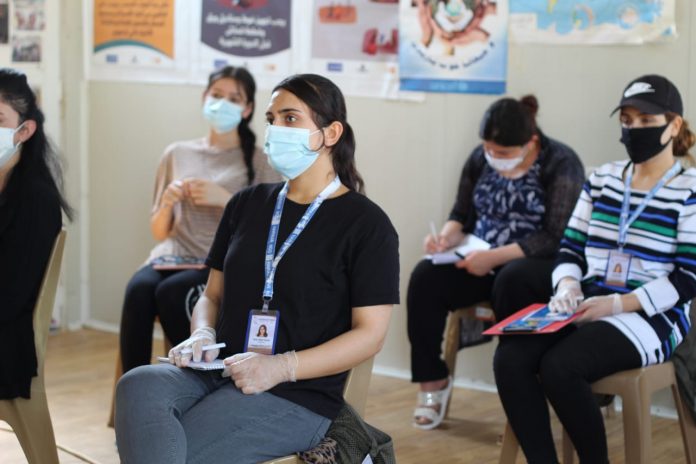Nishat had a conversation with founder of The Lotus Flower, Taban Shoresh, who started this organisation after surviving ISIS in her homeland of Kurdistan, Iraq
While COVID-19 brings certain demographics more fatalities and hospitalisation than others, what happens when the virus reaches people who have survived inhumane horrors?
This story begins with the erasing of a country. After World War I, the Allied Powers removed Kurdistan from the maps as they carved up the territory of the Middle East. Cut adrift from a single homeland, the Kurdish people then struggled to achieve cultural and political rights in other countries.
Following the end of the Gulf War, the Kurdish resistance became a problem for Saddam Hussein, leading to a devastating military campaign. Though people fled through the mountains of Turkey and Iran, too many did not make it out. The devastating order to kill all males of an age to bear arms was then enacted. The Anfal genocide then took the lives of between 50,000 to 182,000 Kurds in northern Iraq.
This genocide occurred between 1986 and 1989, leaving behind a community of traumatised survivors. There are an estimated 5.6 to 8.6 million Kurds there today. Recent conflicts in the region continue to make life extremely difficult for the existing community, especially for girls growing up in the shadow of the unresolved past.
We spoke to Taban Shoresh, an aid workers and women’s rights activist, whose family survived the Anfal Genocide. Following a harrowing upbringing, Taban then founded The Lotus Flower in 2016, working to help Kurdish conflict survivors living in refugee camps in Iraq’s Duhok region.
As a result of the COVID-19 outbreak, NGOs were forced to leave these camps, leaving countless people without essential support and services for two months.
The Lotus Flower works with Kurdish conflict survivors in Iraq. How did you get involved in this work?
“I’m a child genocide survivor. Born in Kurdistan, Northern Iraq in the early 1980s, I was taken as a political prisoner at age 4. My family and I then escaped a deadly plot by Saddam Hussein to bury us alive in a mass grave.
My family and I then escaped a deadly plot by Saddam Hussein to bury us alive in a mass grave.
“Following our rescue, we moved to the UK and embarked on a new life.
“But in August 2014, I gave up my successful career in London to return to Kurdistan – where entire communities were being destroyed by the ruthless brutality of ISIS. Horrified to witness the second genocide of my life, my focus has since been helping vulnerable women and girl survivors by enabling them to rehabilitate following such atrocities.
“Just like a lotus flower, I believe these amazing women and girls can emerge out of darkness. Given the right tools, we can help them rebuild their lives.”

Has COVID-19 changed the hopes, dreams and concerns of the people you work with?
“I wouldn’t necessarily say it’s changed the hopes, dreams, and concerns of our community. Everyone wants their family to have access to safety, education, and livelihoods. If anything, COVID-19 has exacerbated the existing problems people face when living in displacement.
If anything, COVID-19 has exacerbated the existing problems people face when living in displacement.
“When we returned to the camps in May 2020, we conducted an in-depth assessment through questionnaires and interviews to gain insight into how COVID and the quarantined affected the residents. 81% of respondents reported increased financial hardship as most jobs were halted due to curfew and quarantine. This resulted in lack of food, medicine, and illness. 72% of respondents experienced mental health difficulties and 85% said that it’s increased since the start of the crisis.
“In addition, 89% of respondents said gender-based violence has increased as well.”
What kind of obstacles are you facing when you’re carrying out this work?
“Currently, our biggest obstacle is not being able to provide as many in-person services and programmes. Although the region is not longer in quarantine, there are still positive cases and we want to do everything we can to ensure that our community members and team are safe and healthy.
“Fortunately, One Young World has provided the essential personal protection equipment that we need: masks, gloves, hand sanitizer. With their support, we have also been able to distribute hygiene packs (masks, soap, hand sanitizer) to the most vulnerable residents, COVID-19 prevention and protection information, and awareness sessions to share the most up-to-date information on the virus.
“We can’t help but worry about the community that we serve – it’s our responsibility to find creative and innovative ways to provide services even with unexpected and unprecedented obstacles. We had recruited a professional psychologist to join our team in late 2019 and with One Young World’s support, she was able to continue, and even increase, our mental health services through a digital platform.
“She continued provide one-on-one support and be a resource for mental health tips and advice to our community through their phones even though she couldn’t be there in person.”

If you could recommend global policy changes, what would you ask for?
“It was impossible to predict that 2020 would be defined by a global health pandemic. Because of this, the response needs to be immediate and flexible and as such, funding needs to be immediate and flexible as the situation is dynamic. Local NGOs, like us, cannot wait months and months for a grant application to be accepted and funding to be released.
Local NGOs, like us, cannot wait months and months for a grant application to be accepted and funding to be released.
“One Young World responded quickly with immediate funding and support. Their team has been available to discuss our activities and open to new ideas, such as including the hygiene packs in our response as well as education on mental health and gender-based violence.
“In addition, responses to COVID-19 cannot exist in a vacuum. Hygiene items, personal protection gear, and COVID-19 education is the first level of response to address healthcare. As mentioned previously, the impact of COVID-19 exacerbated existing problems: unemployment and the need for livelihood support, mental health, and domestic violence.
“All of these are interconnected; any response or global policy must address multiple levels and ideally, long-term. From the beginning, One Young World has been an avid supporter of our integrated approach. To complement our COVID-focused activities, we also provide mental health support through individualised case management and education and domestic violence awareness through education campaigns.
“Because of the opportunity to partner with One Young World, we have been able to directly reach just over 9,000 individuals through our digital platform.”
And finally, the domestic violence aspect. How have the community education and awareness schemes made an impact?
“Domestic violence doesn’t exist in a vacuum or suddenly turn physical overnight. Responding to and changing ideas and attitudes around domestic violence takes time. We believe that for our programme to be successful, we need to address other concerns and needs at the same time. What we have witnessed over the past six months is that providing mental health support as part of our GBV community education and awareness has made a considerable impact.
“Although the majority of our programme participants are women and girls, we’ve actively encouraged men and boys to participate in our COVID-19 programming.
“Although the majority of our programme participants are women and girls, we’ve actively encouraged men and boys to participate in our COVID-19 programming.
“Our psychologist provides mental health services and information to male and female clients. Our digital platform has provided a safe, non-confrontational space for women and men to discuss gender-based violence by asking questions, sharing their thoughts, and engaging with each other.”
Taban is a One Young World ambassador, and recipient of the Covid Young Leaders Fund.











